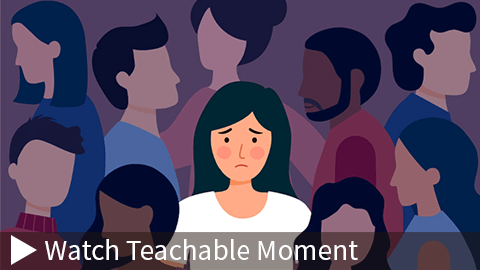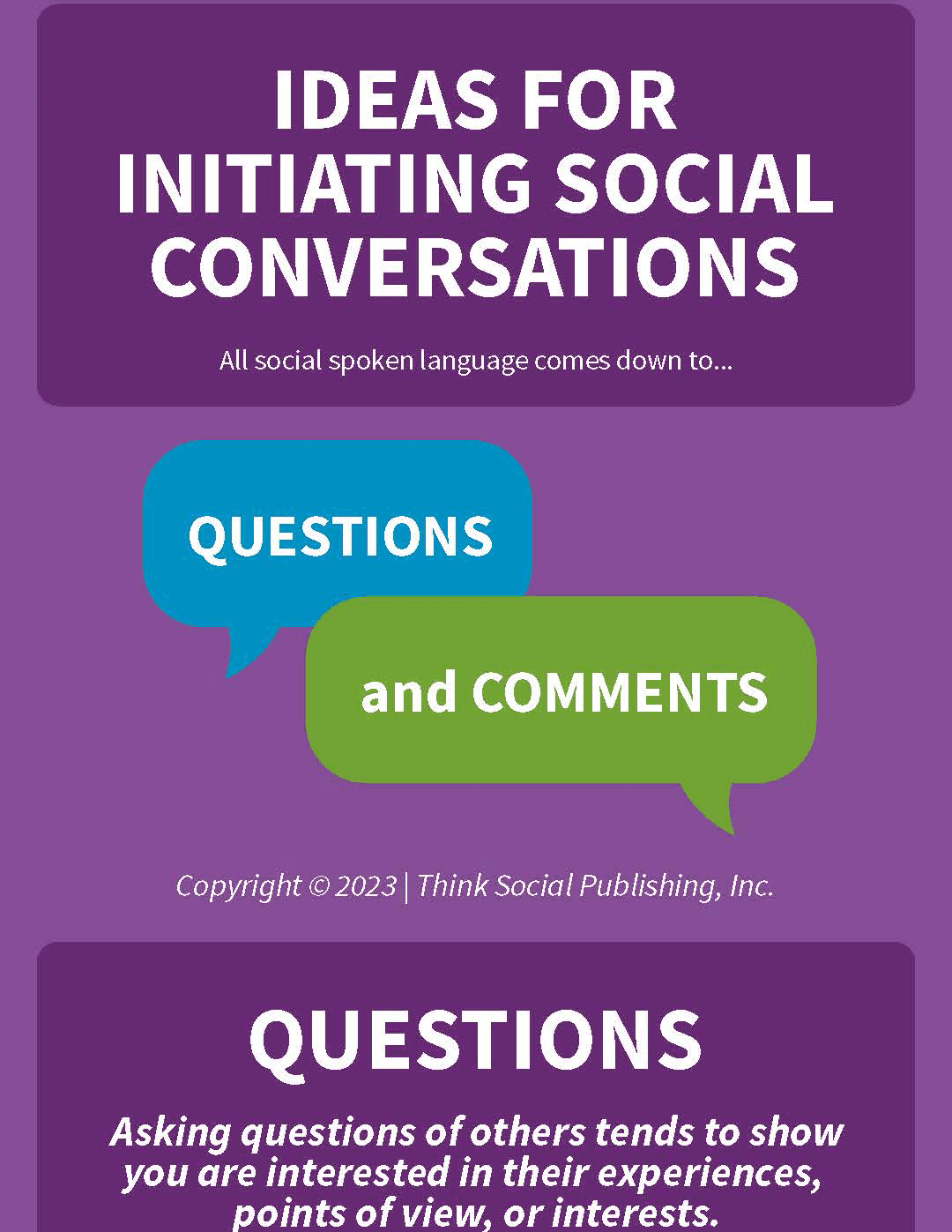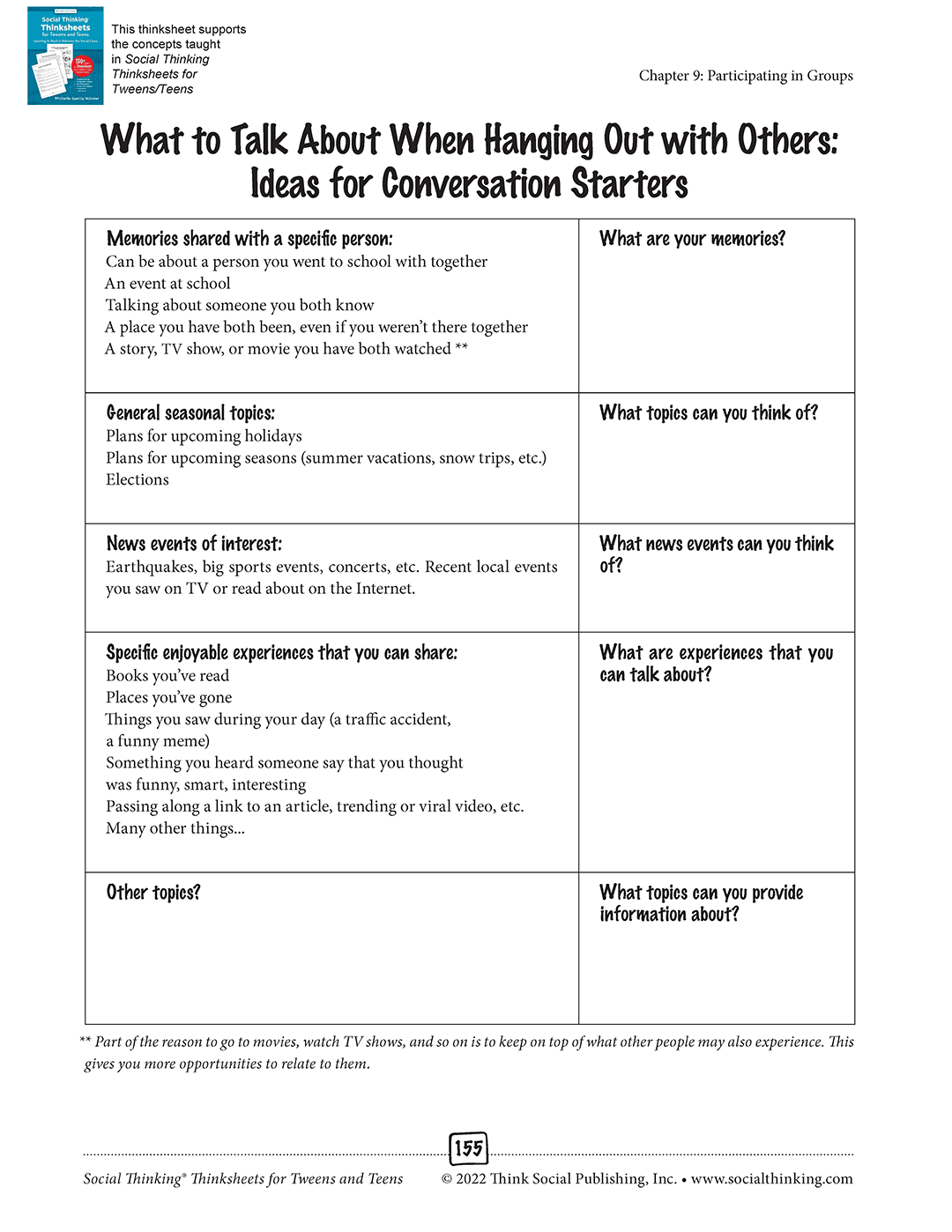Add-a-Thought: Teach an Essential Conversation Skill
Help Social Learners Build Strategies That Support Connection
Conversation is hard to do! For something that is so basic to human interaction and social connection, engaging in conversation requires a complex array of social competencies and, at times, is surprisingly difficult to pull off successfully. How do we teach social learners of all ages the why and how of developing meaningful connection with others through face-to-face conversations at home, school, in the workplace, and within their communities?
Whether we have conversations to share information, communicate physical and emotional needs, or simply to develop a personal connection through small talk, we cannot just follow a reliable script for how they will unfold. We can, however, learn to increase our social awareness, organize our thinking before conversations begin, and practice strategies to keep the connection going. Explore our broad range of resources for teaching conversation and connection to help guide social learners in some of the most significant learning of their lives.
Quick Links
- Best-Selling & Award-Winning Products
- On Demand Courses
CEs available for select professionals - Free Stuff for Home & School
- What is Social Thinking?
Best-Selling Products to Support Conversation & Connection
Related On Demand courses taught by thought leaders in social, emotional & academic learning

Combating Loneliness and Misbehavior
Download this free visual with practical ideas for initiating social conversations, which Michelle Garcia Winner presents in this course.
Loneliness is a dangerous national epidemic that has been growing in depth and complexity for many years. Loneliness not only endangers our mental and physical health, but it also can make us less kind and caring toward others, resulting at times in misbehavior at schools and within our communities. We’ll explore a range of research-informed ways we can cultivate meaningful relationships with others to foster our well-being, as well as kindness, empathy, and generosity of spirit toward others. Now more than ever, building social awareness, managing anxiety, and developing social communication strategies to combat this growing crisis of loneliness is critical for school-age children, tweens and teens, and all the way through the adult years. The 90-day Recorded Replay Access begins at the time of Registration.
1.5 hours of CE credit available for select professionals.

Small Talk & Conversations
Small talk and conversations are dynamic, and we cannot create reliable scripts for how they will unfold. We can, however, increase our students' awareness of why we engage in social exchanges such as small talk. In this online course, we will unpack the complexities of small talk and conversation. We’ll break these down into their component parts to build strategies that support engagement in initial and ongoing social connection for children, teens, and adults. The 90-day Recorded Replay Access begins at the time of Registration.
3.5 hours of CE credit available for select professionals.
Free Stuff for Home & School
Ideas for Initiating Communication

Initiating Communication
What to Talk About

What is Social Thinking?
Develop Social Competencies
The Social Thinking Methodology provides evidence-based strategies to help people ages four throughout adulthood develop their social competencies, flexible thinking, and social problem solving to meet their own social goals and improve:

